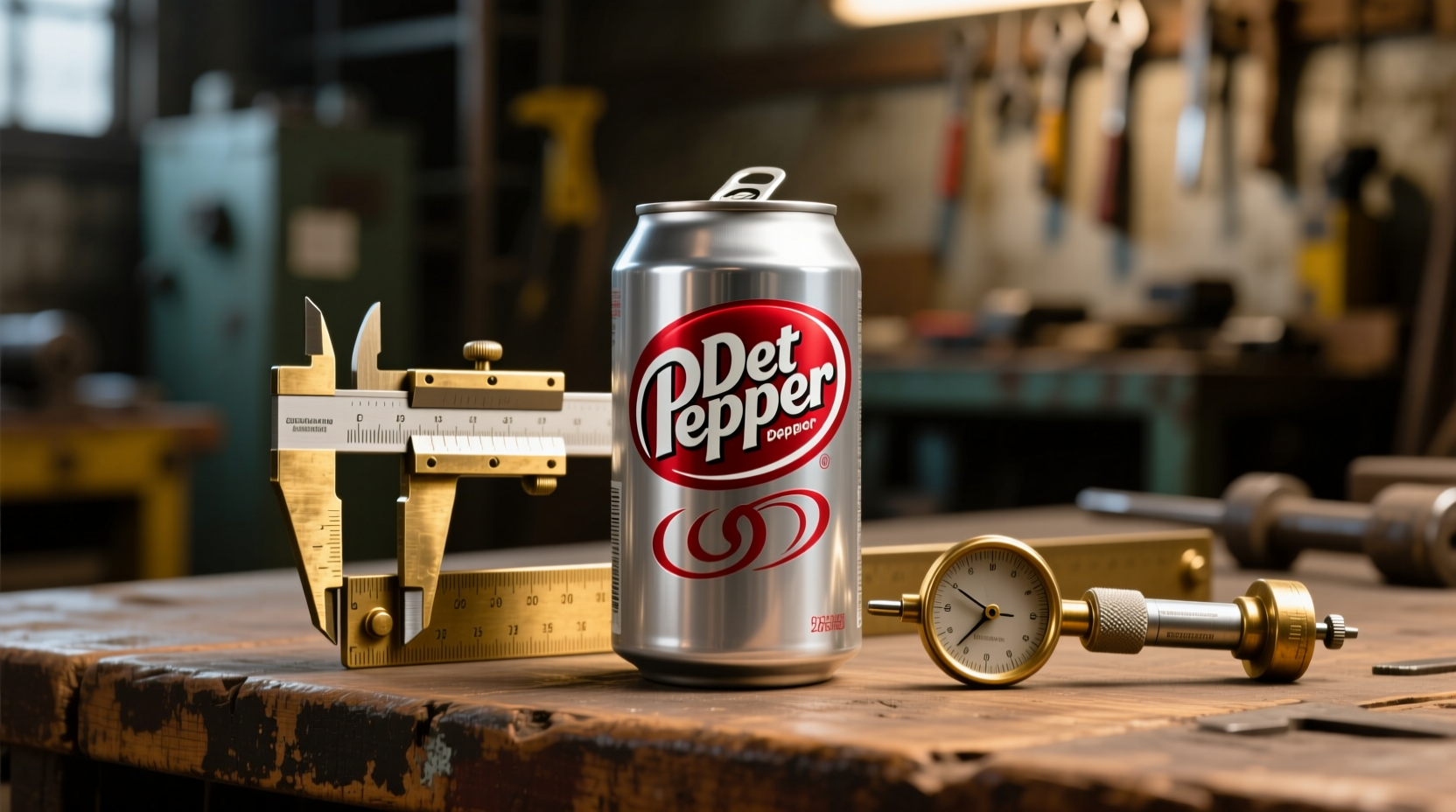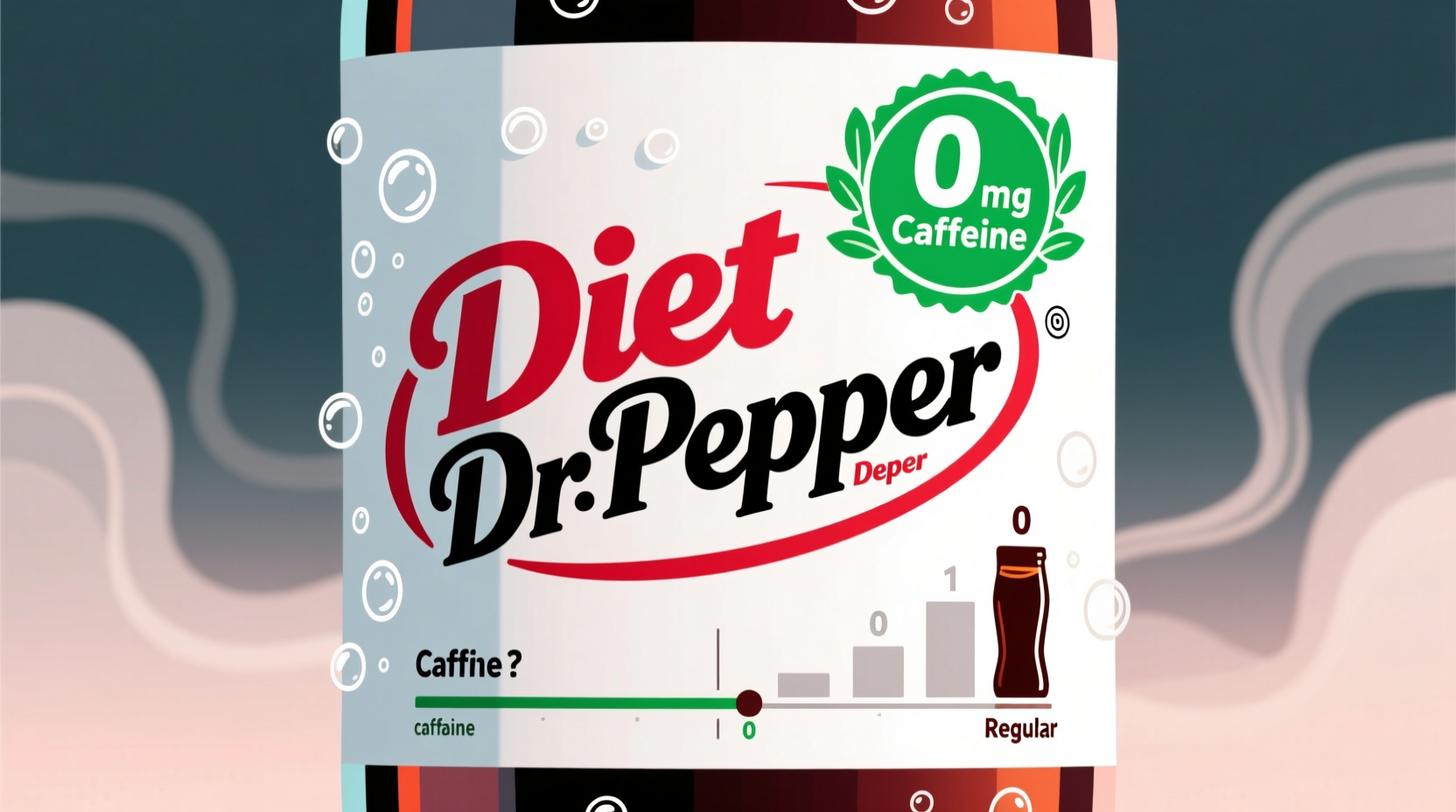If you're monitoring your caffeine intake due to health concerns, pregnancy, medication interactions, or personal preference, knowing exactly what's in your diet soda matters. This article provides verified caffeine content details for Diet Dr Pepper, compares it with other popular beverages, and gives you practical tools to make informed choices about your daily caffeine consumption.
Understanding Diet Dr Pepper's Caffeine Content
Diet Dr Pepper contains 44 mg of caffeine per 12-ounce can—identical to the regular version of Dr Pepper. This information comes directly from the Dr Pepper Snapple Group's official product specifications and is consistent across most U.S. markets. The caffeine serves both as a flavor enhancer and mild stimulant, contributing to the distinctive taste profile that sets Dr Pepper apart from other colas.
Unlike some beverage companies that offer both caffeinated and caffeine-free versions of their diet sodas, Dr Pepper maintains the same caffeine content across its regular and diet formulations. This consistency helps preserve the signature 23-flavor blend that defines Dr Pepper's unique taste.
Caffeine Comparison: Where Diet Dr Pepper Stands
Understanding how Diet Dr Pepper's caffeine content compares to other beverages puts this information into practical context. The table below shows caffeine levels in common drinks to help you make informed choices:
| Beverage (12 fl oz) | Caffeine Content | Equivalent To |
|---|---|---|
| Diet Dr Pepper | 44 mg | 1 standard serving |
| Regular Cola | 34 mg | 0.77 Diet Dr Pepper |
| Brewed Coffee | 140 mg | 3.2 Diet Dr Pepper |
| Black Tea | 47 mg | 1.07 Diet Dr Pepper |
| Diet Coke | 46 mg | 1.05 Diet Dr Pepper |
| Caffeine-Free Soda | 0 mg | None |
This comparison comes from data verified through the U.S. Food and Drug Administration's caffeine guidelines and Centers for Disease Control and Prevention beverage consumption reports. Understanding these relative levels helps you manage your total daily caffeine intake more effectively.
When Caffeine Content Matters Most
Certain situations make monitoring Diet Dr Pepper's caffeine content particularly important:
- Before bedtime: Consuming Diet Dr Pepper within 6 hours of sleep may disrupt your sleep cycle, as caffeine has a half-life of 5-6 hours in most adults
- With certain medications: Caffeine can interact with medications like thyroid treatments, some antibiotics, and antidepressants
- During pregnancy: The American College of Obstetricians and Gynecologists recommends limiting caffeine to 200 mg daily during pregnancy
- For children and adolescents: The American Academy of Pediatrics discourages caffeine consumption for this age group
These context boundaries help explain why the same 44 mg of caffeine might be insignificant for one person but problematic for another. Your individual sensitivity, health conditions, and consumption timing all affect how Diet Dr Pepper's caffeine impacts you.
Reading Labels Like a Pro
While caffeine content is generally consistent, formulations can vary by region and over time. Here's how to verify current caffeine levels in your Diet Dr Pepper:
- Check the ingredient list for “caffeine” (usually near the end)
- Look for nutrition facts panels that sometimes include caffeine content
- Visit the official Dr Pepper website's nutrition information section
- Contact consumer relations for the most current formulation details
Be aware that “natural flavors” in the ingredients list may include cola nut extract, which naturally contains caffeine, though Dr Pepper's primary caffeine source is added separately. Regional variations exist—for example, some international markets sell caffeine-free versions of Diet Dr Pepper.

Smart Alternatives for Caffeine-Conscious Consumers
If you're looking to reduce caffeine while still enjoying a diet soda, consider these alternatives:
- Caffeine-free Diet Dr Pepper: Available in some regions and through specialty retailers
- Diet R. White: Dr Pepper's caffeine-free alternative with similar flavor profile
- Diet Sprite or Diet 7Up: Citrus sodas that are naturally caffeine-free
- Sparkling water with flavor drops: Customizable caffeine-free option
Remember that “diet” refers only to the sugar content—not caffeine levels. Many consumers mistakenly assume all diet sodas are caffeine-free, which isn't the case. Always verify the specific product's ingredients rather than making assumptions based on marketing terms.
Managing Your Daily Caffeine Intake
The FDA considers 400 mg of caffeine per day safe for most healthy adults—equivalent to about nine 12-ounce servings of Diet Dr Pepper. However, individual tolerance varies significantly. If you're sensitive to caffeine or have specific health concerns, even one serving might affect you.
Track your total daily caffeine from all sources—not just Diet Dr Pepper. Many people don't realize that chocolate, certain medications, and even some decaffeinated beverages contain small amounts of caffeine that add up throughout the day.











 浙公网安备
33010002000092号
浙公网安备
33010002000092号 浙B2-20120091-4
浙B2-20120091-4